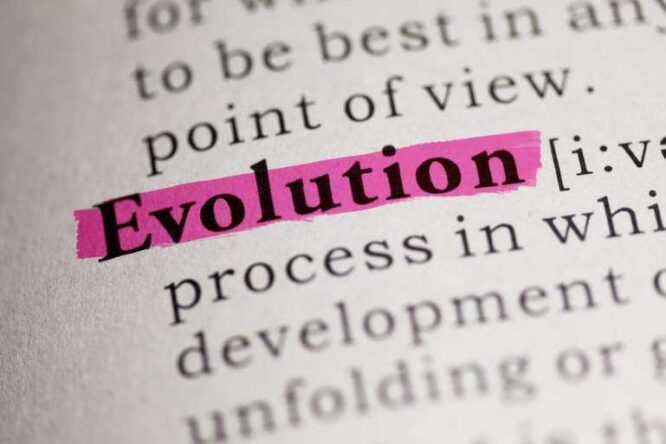Teachers are often encouraged by colleagues and heads of departments to take up opportunities to mark external exam or tests. There is extra money to be earned, but teachers are also often told that it is also good professional development. But what do people mean when they say that, and what parts of your professional practice does marking help to develop?
In other words, what are the benefits of marking exams?
There has been research from the United States and New Zealand where teachers were asked to reflect on their marking experiences in state or national testing programs and say what they have learned or gained. There's a range of potential benefits described; everything from gaining awareness of literacy behaviours of students (Gambell & Hunter, 2004), to validation of their expertise (Gilmore, 2002) as well as making teachers ‘more reflective, critical and deliberate' (Goldberg & Roswell, 2000).
One article (Falk & Ort, 1998) identifies four broad areas of professional learning from marking:
- clarifying goals and expectations;
- deepening discipline knowledge;
- learning more about students and their work;
- and developing insights that support professional practice.
Most of the research that has been done in this area reports benefits that mostly align with these four broad areas, though not all areas are reported in all studies. The variability of the reported benefits may be due to scoring experiences being unique in some respects, due to who the participants are, which assessment is being marked, as well as other contextual factors.
As Goldberg (2012) says, ‘Until now the assertion that scoring serves (or can serve) as professional development has tended to get passed along without considering the great variety of experiences through which teacher engagement in scoring is filtered.'
But not much, if any, research looking at the potential or actual benefits of marking has been done here in Australia, so it is yet to be established if the findings from other places around the world hold true for Australian teachers.
Of course, because the reported sources of benefit are conversations with colleagues about student work and exposure to a wide range of student work of varying quality (Gambell & Hunter, 2004; Goldberg & Roswell, 2000; Masters & Forster, 2000), it stands to reason that similar activities in an Australian context would have similar impacts on teachers.
As a PhD candidate at Edith Cowan University, I have been collecting recollections and reflections from Australian teachers through an online survey. The survey is mainly aimed at teachers who have marked before, but I'm also collecting responses from teachers who have thought about marking and have not yet been able to. I aim to find out whether Australian teachers share the same ideas about the pros and cons of marking as their international colleagues. The survey has begun with teachers from Western Australia, but I'm now looking to capture responses from further afield as well.
The research is ongoing, but initial responses indicate that there are diverse reasons that teachers decide to mark exams and large, external assessments. In answer to the question of why they decided to mark the first time, there has been a variety of responses. Some teachers answered simply with ‘money', but a number of teachers report that they took up marking opportunities for reasons such as it being ‘recommended by my head of department', ‘for professional development', and wanting to ‘maintain professional knowledge/development'. There are also others who do it because they ‘enjoy the analysis', to ‘gain confidence in my own marking', or ‘to gain first-hand knowledge of the standards across the state'.
As a counterpoint, the drawbacks of marking do outweigh the potential benefits for some of the teachers surveyed. One response, for example, was that class marking already took so much time that there was no time left for taking up marking opportunities. Time-pressure is one of the more common responses reported so far about the drawbacks of participating in large-scale marking. However, as more responses are collected, other drawbacks may come to the fore.
However, there is one question that, so far, has received an almost unanimous answer. When teachers who have marked are asked for what advice they would give to someone considering being a marker, they encourage other teachers to take up marking opportunities. So, markers do appear to think that marking is good for teachers, but narrowing down the how and why is an ongoing process.
Nathanael Reinertsen is interested in hearing from educators who would like to contribute their voice to his research. Have you been a marker? Have you thought about marking? To participate in the research visit https://ecuau.qualtrics.com/jfe/form/SV_57TBV87PEBZWrdz
References:
Falk, B. & Ort, S. (1998). Sitting down to score: Teacher learning through assessment. Phi Delta Kappan 80(1), 59-64.
Gambell, T. & Hunter, D. (2004). Teacher scoring of large-scale assessment: professional development or debilitation? Journal of Curriculum Studies, 36(6), 697-724.
Gilmore, A. (2002). Large-scale assessment and teachers' assessment capacity: Learning opportunities for teachers in the National Education Monitoring Project in New Zealand. Assessment in Education: Principles, Policy & Practice, 9(3), 343-361.
Goldberg, G. & Roswell, B. (2000). From perception to practice: The impact of teachers' scoring experience on performance-based instruction and classroom assessment. Educational Assessment, 6(4), 257-290
Goldberg, G. (2012). Judgment-based scoring by teachers as professional development: Distinguishing promises from proof. Educational Measurement: Issues and Practice, 31(3), 38-47.
Masters, G. & Forster, M. (2000). The assessments we need. Melbourne, Vic., Australia: Australian Council for Educational Research.
Have you been a marker of exams or large scale assessments? What are some of the benefits you found from being involved? What were some of the drawbacks?
Do you think this experience improved your overall professional practice? How has it improved the way you work in your own school setting?



